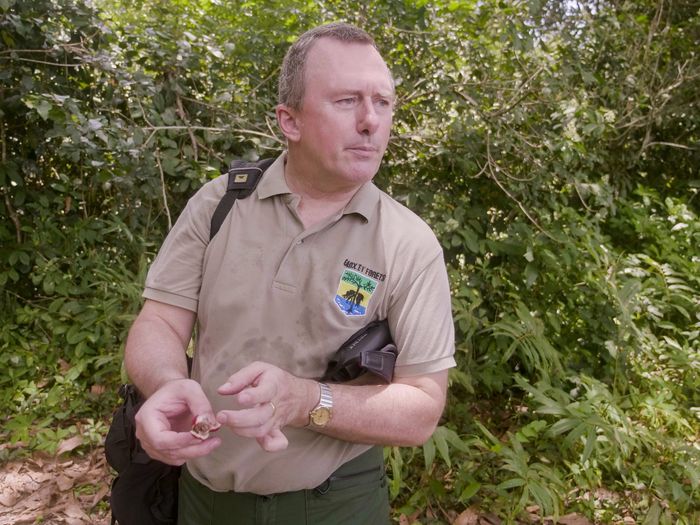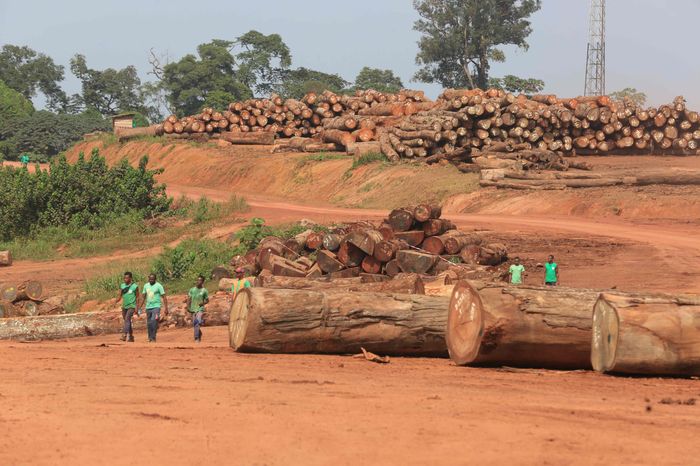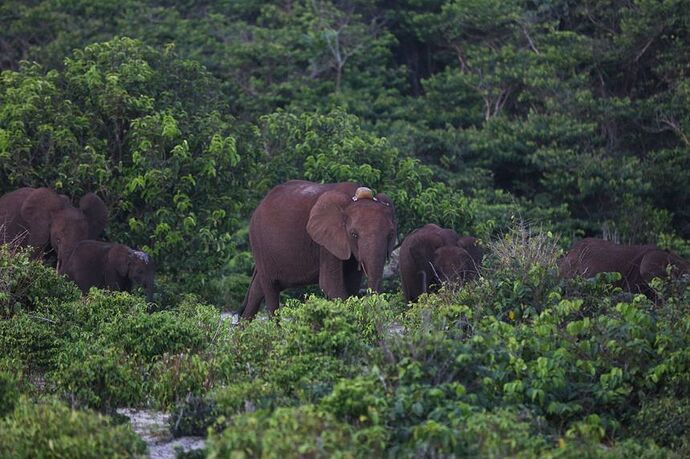African country plans to offer the largest-ever issuance of offsets, seeking a windfall for preserving its vast forests
The African nation of Gabon, one of the most densely forested on earth, is launching the world’s biggest sale of carbon-offset credits. The plan could net the country billions of dollars and upend the fast-growing market for carbon credits.
Gabon, which sits on Africa’s west coast, is 88% forest. It has slowed the cutting of those trees and is now seeking to sell credits for the emissions decline it has achieved. The trees pull carbon dioxide from the atmosphere, reducing greenhouse gases.
“In a self-interested way we’re looking at the money,” said Lee White, a U.K.-born zoologist and naturalized Gabonese citizen who is the country’s environment minister. “But then we’re also looking at potentially being an example of how it can work so that we can actually get this scale” needed to help curb global emissions growth, he said.
Gabon’s move comes as countries from Indonesia to India attempt to take control of the potential revenue generated by emissions-reduction activities within their borders. Many, like Gabon, are looking for new ways to issue and sell large volumes of carbon credits. In the coming weeks, Gabon will likely try to sell 90 million credits, which is nearly the same as the total of similar credits issued last year.
“If Gabon can do it, Congo can do it and DRC [Democratic Republic of Congo] can do it, and Suriname can do it,” said Mr. White, who for years ran the Wildlife Conservation Society’s Gabon program as well as the country’s national park system.
Gabon’s environment minister, Lee White, is a longtime conservationist who is trying to help the country get paid for its efforts in preserving forests and curbing climate change. Photo: CHRISTOPHE VAN DER PERRE/REUTERS
These countries are trying to better manage credit issuance and revenues, which have often been in the hands of private project developers. They are hoping to keep a bigger slice of the profits and ensure they can use the credits toward their own emissions-reduction promises. Some countries including Indonesia, Papua New Guinea and Honduras have halted crediting or sales from the private conservation projects.
The market for carbon credits is booming as businesses and investors buy them to offset their emissions or potentially resell them at a profit. Rich governments are increasingly looking to the carbon markets as a way to increase private funding for climate-related projects in developing nations. The U.S. proposed a new carbon-crediting program at the United Nations climate conference in Egypt, which would aim to help developing countries wean themselves off fossil fuels.
Mr. White and the head of Gabon’s sovereign-wealth fund have been meeting with banks and potential buyers to talk up the credits, including at the U.N. conference.
Before launching Gabon’s crediting push, Mr. White spearheaded a push to protect the country’s endangered forest elephants from poachers, donning camouflage gear and sending out armed Gabonese units to patrol the forests.
Get updates from the U.N.'s climate conference and a weekly must-read on the intersection of business, money and climate.
Gabon has historically made most of its money from oil and gas, and it is looking to its forests to provide a much bigger share of national revenue as the globe shifts away from fossil fuels. The country wants to build a sustainable timber and wood-products industry that can earn revenue while continuing to generate credits, Mr. White said.
Gabon’s sale is controversial. Each of its credits represent one metric ton of carbon emissions that the country has reduced by actions, such as halting illegal logging, during the nine years through 2018. But Gabon isn’t selling its emissions reductions through the standard channels**,** where developing countries often get a relatively low price of $5 a ton for credits.
Instead, Gabon is hoping to get higher prices and better terms by going directly to a swath of potential buyers, including private-sector companies that until now have generally purchased forest-conservation credits on a much smaller scale. Similar credits to Gabon’s on the voluntary market can fetch $15 a ton or more.
Such sales haven’t worked out for some other countries. Papua New Guinea put nine million credits up for sale last year using the same method as Gabon, but only 20,000 or so have been sold. Honduras and Belize are thinking of following suit, said Kevin Conrad, executive director of New York-based nonprofit Coalition for Rainforest Nations, which manages the crediting standard Gabon is using.
Gabon is trying to figure out how to make money off its potentially lucrative timber industry while still preserving forests.Photo: steeve jordan/Agence France-Presse/Getty Images
Gabon’s planned sale is roiling the carbon markets. Established players such as analysts, brokers and other industry executives are raising concerns about whether Gabon’s credits have been properly audited and how the market will absorb such a big sale.
Carbon credits are typically audited to make sure their claims about reducing greenhouse gases are valid. Preserving forests that were never going to be cut shouldn’t generate carbon credits.
Because of the size of Gabon’s effort, even small errors could produce large numbers of extraneous credits, said Guy Turner, chief executive of data provider Trove Research Ltd. The company issued a warning that Gabon’s method had too many “red flags” and was unlikely to find many corporate buyers.
Gabon’s credits have been vetted under strict U.N. standards and are worth far more in terms of environmental benefits than anything else on the market, Mr. White said. He adds that the world needs large volumes of credits to make a dent in greenhouse gases in the atmosphere.
Potential buyers will need to be reassured that the money will go to the appropriate recipients, such as people living in the forests that are being preserved, and not to line official pockets, said Patrice Lefeu, climate-finance leader at Ernst & Young. One way to do that is by setting up an independently audited fund to manage the money, he said. EY is pitching such services to Gabon.
Gabon has been led by one family since 1967. Riots erupted after opposition politicians alleged the 2016 presidential election was rigged. A Gabonese high court confirmed the election results. Mr. White was brought in as environment minister in 2019, following a scandal involving the disappearance of millions of dollars worth of illegally logged hardwood.
Mr. White said Gabon is considering methods to ensure the revenue from credits is managed well and transparently. It is proposing to spend around half on conservation as well as other rural and sustainable-development ventures, and the other half on debt service and government-funded areas such as education, health and infrastructure, Mr. White said.
Elephants in Gabon’s Loango Park, part of an extensive national park system that also absorbs millions of tons of carbon dioxide.Photo: steeve jordan/Agence France-Presse/Getty Images
Credit to Phred Dvorak of WSJ


